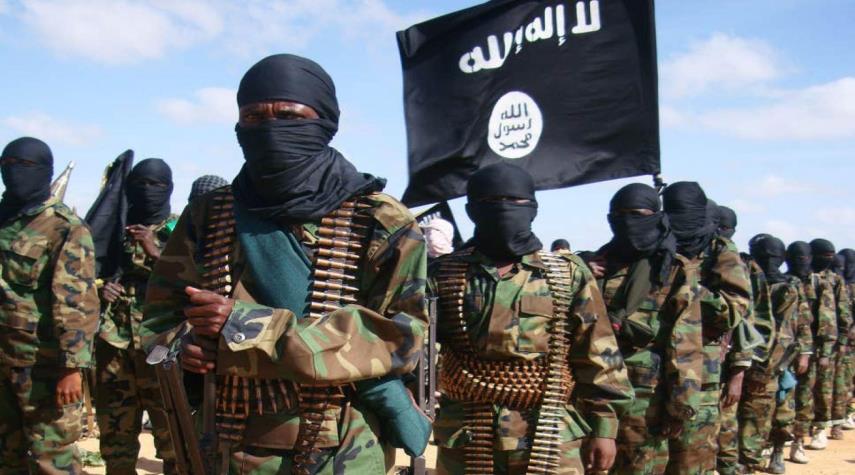Dr. Seyed Razi Emadi, in an interview with the website of the Strategic Council on Foreign Relations, said that there are several reasons for the possible increase in the ISIS activities in Iraq, adding: The former US administration, led by Donald Trump, imported a large number of ISIS forces from Syria to Iraq thus increasing the number of ISIS fighters in Iraq.
He added that this would allow ISIS to increase its instigations, as previously the ISIS had been faced with a shortage of forces in Iraq but now is somewhat more open for activities in terms of number of its forces.
ISIS thought in Iraq
The analyst of West Asian affairs continued: Furthermore, although the ISIS organization in Iraq was completely destroyed in 2017, the bitter truth is that the ISIS ideology in that country has not been disappeared. During the three years that ISIS was present in Iraq it greatly influenced the Iraqi society ideologically and injected violence into the body of the Iraqi society.
Saying that ISIS had destroyed the living infrastructures in the areas where it was present, Emadi noted: The people living in those areas were disappointed, lost their family members and now have nothing to lose; therefore, it is possible for them to carry out terrorist acts in Iraq with financial promises or due to the complexes created by ISIS. As those who carried out the recent operations were of Iraqi origin; this shows that ISIS has a force in Iraq and its remnants still exist.
Stressing that some powers are now using ISIS remnants in Iraq as their tools, the university professor added: Those moves came at a time when a new government has emerged in the United States. One of the most important issues in Iraq over the past year has been the issue of the withdrawal of US troops from Iraq, which has recently received some more serious attention.
Emadi continued: Now those explosions send this message that withdrawal of American troops could worsen the security situation in Iraq; Iraqi Prime Minister Mustafa al-Kadhimi has said that they need foreign aid, and Iraqi Foreign Minister Fuad Hussein has said that the issue of US troops in Iraq should be pursued more seriously and that they need to talk about it.
Survivors of ISIS, part of the leverage of foreign players towards Iraq
He stressed: There is this view that ISIS survivors are part of the leverage of foreign players for their foreign policy towards Iraq. It is as if several Iraqi personalities have also suggested that those movements and clashes that took place were carried out with the support of outside powers. Although there is no document available about it, it is considered as a strong analysis that the powers that have some interests are trying to take advantage of the presence of ISIS remnants and the conflict within Iraq.
The international relations professor added: This view is especially true about the United States, which is under pressure of resistance groups to withdraw its troops following an approval of the Iraqi parliament.
Impossibility of recreating and reviving the ISIS organization
Emadi, explaining that it was basically impossible to recreate and revive ISIS, said: If ISIS occupied parts of Iraq in 2014, it was because Iraq had a collapsed army and there was betrayal; but today, the Iraqi army is more cohesive, and the fact that the Hashd al-Shaabi organization has been formed with its numerous subdivisions in Iraq, which plays a very important role in the security structure of the country, and at the same time, the issue of betrayal of security commanders, with regard to the molting which has taken place, has also been greatly reduced and it is no longer a new issue in Iraq.
He stressed: There is no discussion of ISIS in Iraq, but there is a possibility of the repetition of terrorist operations by ISIS in Iraq.
The expert of West Asian affairs further remarked: There seems to be a security and intelligence vacuum in Iraq. After the recent operations, we noticed that two security agencies, including the spokesman of the Armed Forces and the Iraqi Ministry of the Interior, presented two different versions of the operations. This shows that there is no necessary efficiency and intelligence-security consensus in Iraq, and for this reason, Mustafa al-Kadhimi has dismissed part of the intelligence and security forces.
Increase in the scope of terrorist operations in Iraq
Meanwhile, Emadi considered the role of political exploitations in those dismissals as being significant of consideration and added: In any case, there is an information and security fault in Iraq, and the possibility of such movements being carried out is much more important than before and is feasible.
He said: Despite the fact that Hashd al-Shaabi and the Iraqi army security forces are fighting the remnants of ISIS, it is a feature of the ISIS that it can carry out terrorist operations and the bedrock of a society like Iraq that is facing with severe instability in political terms and where there is no necessary stability, authority and security, the ground is prepared for the possibility of terrorist and suicidal operations for ISIS.










0 Comments